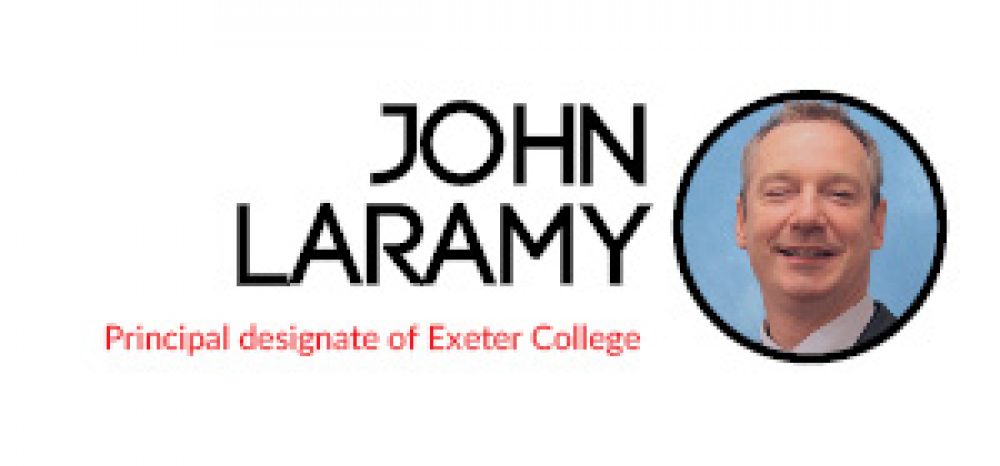Exeter College is rated outstanding by Ofsted which has praised the excellent progress made there by apprentices. So John Laramy, who will start as principal in April and was previously deputy principal in charge of curriculum, quality and standards at the college, reflects here on the secret of success for its apprenticeship programme.
Since the age of 16, when I entered the construction industry as a trainee and attended college, first on a block release basis and then on a day release basis, I have been aware of the impact of teaching and learning on ambition and ultimately on success.
I endorse the drive to increase the quality and quantity of apprentices within our country, but fear the biggest barrier is a cultural one, and we as a sector need to be passionate about communicating with and informing both schools and parents of the benefits of apprenticeships.
In addition, the Government has a key role to play in driving a wider cultural change and acceptance of apprenticeships as a different, but valid vehicle for learning and career advancement.
There are four elements that feature in truly outstanding apprenticeship provision: partnership, industry standards, relevance and ambition.
Our apprenticeship provision success is based on some key foundations.
In my view, at the heart of a successful apprenticeship is partnership. Today, for the majority of providers, it goes three ways between the apprentice, employer and provider.
While I see value in the apprenticeship ethos for people of all ages, and support lifelong learning, the key focus of our college for our apprenticeship provision and the employers we work with is young people, primarily aged up to 24 years of age.
Employers are busy, so it is critical that time is spent to identify the right apprentice, for the right employer.
It is critical that time is spent to identify the right apprentice
For our college, this unfunded investment has been a critical element of our success — in fact our current problem is that we have more vacancies than we have candidates.
An apprenticeship programme is a time and capacity commitment for an employer.
To create a programme that is meaningful, valid and robust takes resource, and requires ‘two-way’ honest conversations right from the outset.
There are many different providers across the country and we have a responsibility to deliver outstanding training that makes a difference: for businesses this means to the bottom line.
The second critical area is ensuring that we match current industry standards.
As a sector, we have a responsibility to drive innovation and stay at the cutting edge, this is why the right level of funding for apprenticeships is critical.
It is about being prepared to go above and beyond the framework requirement and recognising that sometimes the standard offer is just not enough.
Relevance is about making sure that teaching staff are current, up-to-date and reflective of current practice.
The best teachers bring vocational teaching to life by using examples and experiences. I see apprentices fully engage when great staff share real life situations.
Ambition is about setting standards, whether a qualification is graded or not, and it’s also about encouraging excellence.
Some providers use competition and others use role models, whatever the approach, I believe outstanding teaching and learning manifests ambition.
My hope for the future is that we start to celebrate the difference between full-time and apprenticeship learning, rather than endlessly hunting for the similarity.
The key thing I would ask for is stability; each government sees skills education as a set of chess pieces to be moved.
Since 1981 I believe there have been 28 Acts of Parliament, 61 ministers involved and seven different agencies!
Let’s make a decision for the benefit of the country, get all party support and stick with a ‘generation plan’.
John Laramy is principal designate of Exeter College










Your thoughts